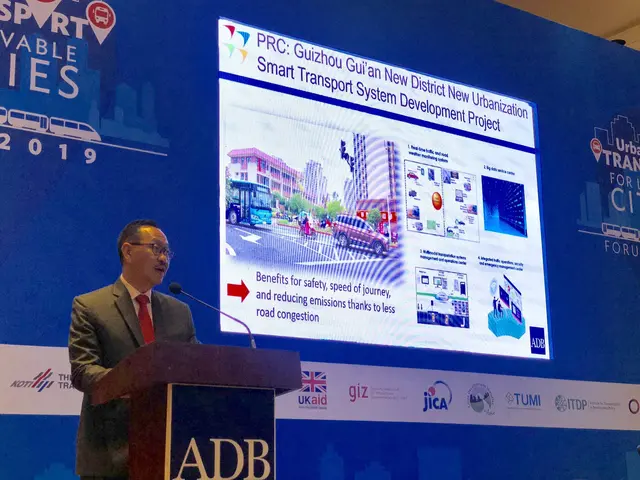By APD writer Melo M. Acuña
The Asian Development Bank said their Urban Operational Plan disclosed cities general over 80% of gross domestic product (GDP) in many countries in Asia and the Pacific as they act as “engines of economic growth” that lifted millions from poverty.
Against this backdrop, Asian Development Bank Vice President Bambang Susantono said as cities expand in size and number they face increasing strain. In the same ADB publication, it is estimated that about 44 million people are being added to Asia’s urban population annually which is equivalent to 120,000 people a day.
Speaking at the First Urban Transport for Livable Cities Forum Tuesday morning at the ADB Headquarters, Mr. Susantono said while urbanization brings many benefits from opportunities for employment for its residents, education and social interaction, rapid urbanization brings pressures on transport systems.
“We see that cities are held back by limitations of transport, leading to problems of pollution, traffic congestion, and poor road safety that result in decreasing quality of life for urban dwellers,” he said.
He called on the participants to the forum to have plans to make the future of urban mobility that are efficient, effective and inclusive as transport systems play and important role in supporting economic development by moving people and goods around cities, between cities and from city hinterlands to the center.
Mr. Susantono said to ensure good quality of life, people should not spend too much time on commuting as 30 minutes is often seen as a manageable commuting time.
“They should not spend too much money to travel either, 10-20% of the household income should be the maximum limit. They should have relatively easy access to quality public transport, no more than 500 meters from their house, school or work and finally, air quality should be within acceptable levels as indicated by the World Health Organization,” he explained further.
He explained Asian cities need a new paradigm in urban transport, which should support equitable access and mobility with minimum impact on the environment “while being inclusive and safe.”
However, he admitted financing requirements are extremely large to improve and manage urban transport systems, build infrastructure, and conduct operations and maintenance.
Quoting from the ADB’s report “Meeting Asia’s Infrastructure Needs.” Mr. Susantono said infrastructure requirements across the region amount to US$26 trillion by 2030 where US$8.4 trillion is required for transport.
“The urban transport needs are estimated to be as much as one third of the total for transport, putting investment needs in urban transport at over US$200 billion a year,” he explained.
He said the Malolos Clark Railway project in the Philippines aims to create a new urban corridor that links the megacity of Manila to the small urban areas to the North and South as the new rail link is expected to play a transformative role in opening-up New Clark City.
“It will also improve access to an international airport at Clark and the industrial zones within the Clark Special Economic Zone,” Susantono added.
He likewise referred to the support ADB extends to a pioneering project that integrates “Intelligent Transport Systems” in the People’s Republic of China, across a city-wide network.
ITS, he said covers multiple systems, the intersection of Information, Technologies and Transport Control Systems. This is integrated into their new bus rapid transit or BRT, including traffic monitoring, managing network that offers real time system, an operations control center that provides multi-modal guidance for improved city management as well as a second center which integrates traffic operations and emergency management.
Mr. Susantono said multilateral and bilateral donor partners including the World Bank, the Government of France’s AFD, the Japan International Cooperation Agency (JICA), the Government of Germany’s GIZ, the German Development Bank KIW and the Government of the United Kingdom’s Department for International Development were responsible for the very first urban transport forum.
He also acknowledged the support extended by the Korea Transport Institute, Institute for Transportation and Development Policy as well as the Cities Development Initiative for Asia, the MobiliseYourCity Partnership among others.
The “Urban Transport for Livable Cities Forum” will end on Friday, October 4.
(ASIA PACIFIC DAILY)
 简体中文
简体中文

